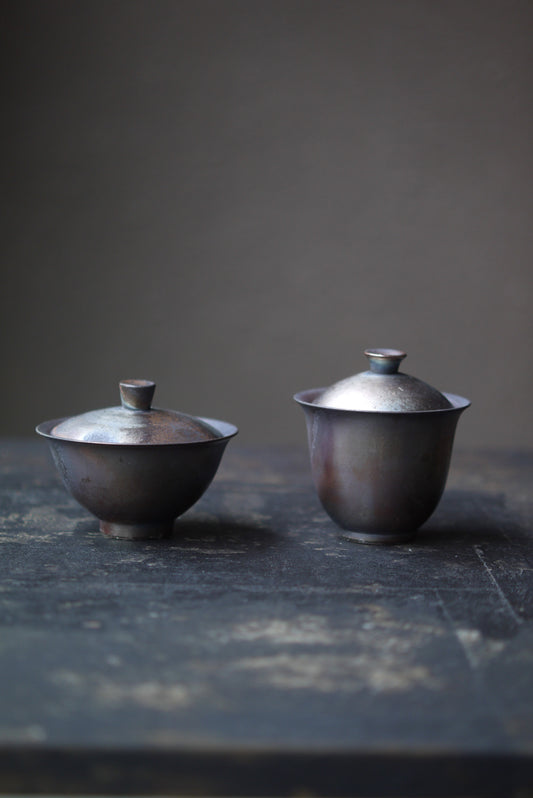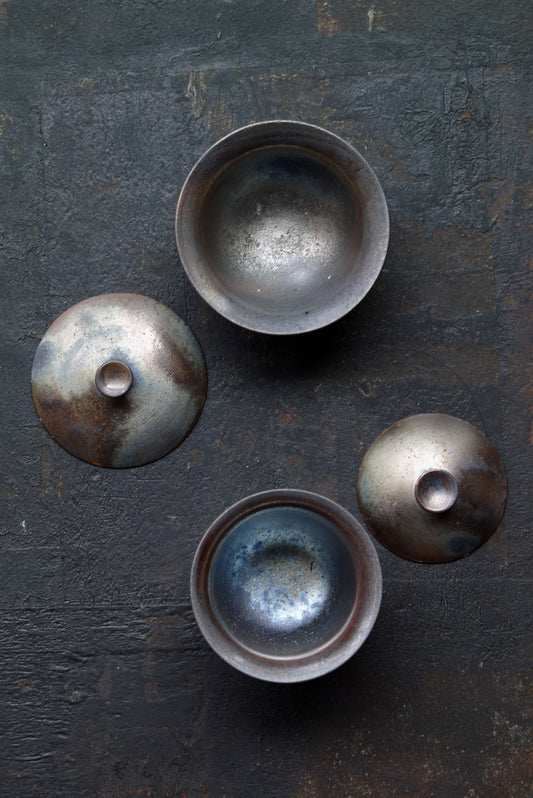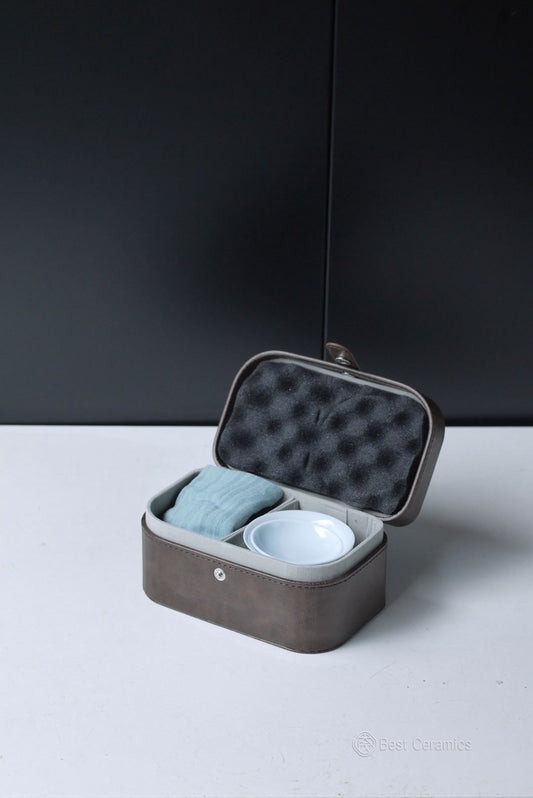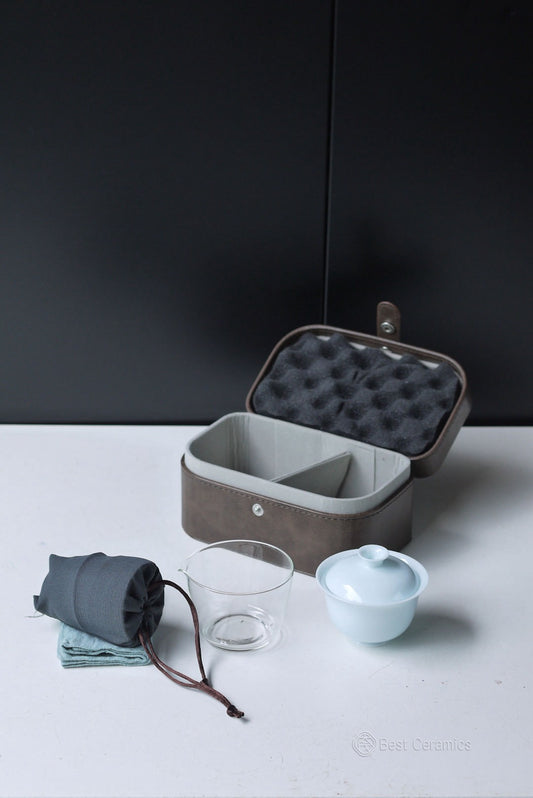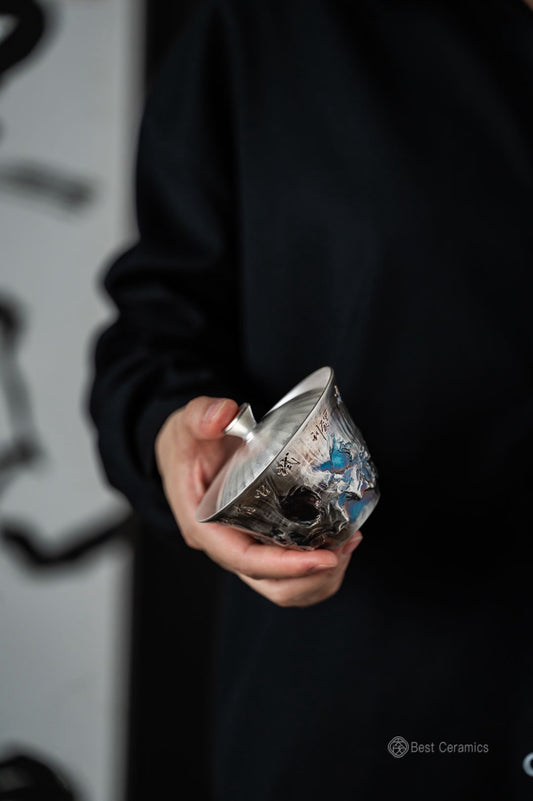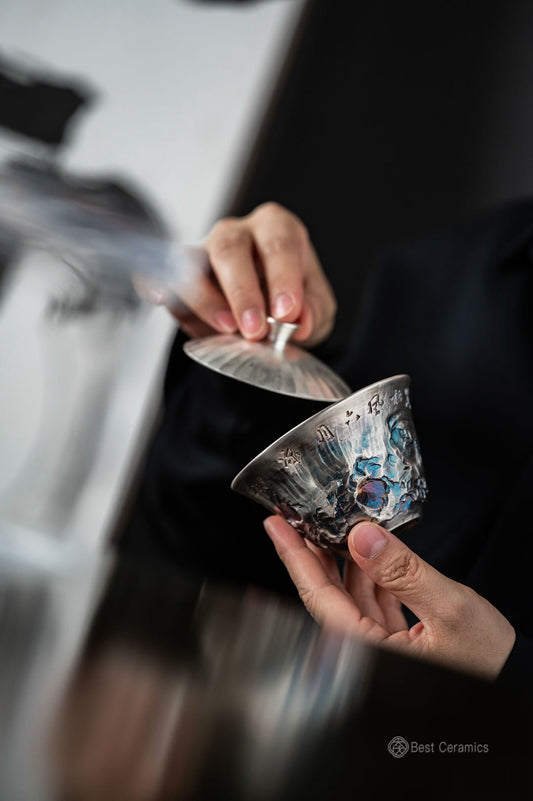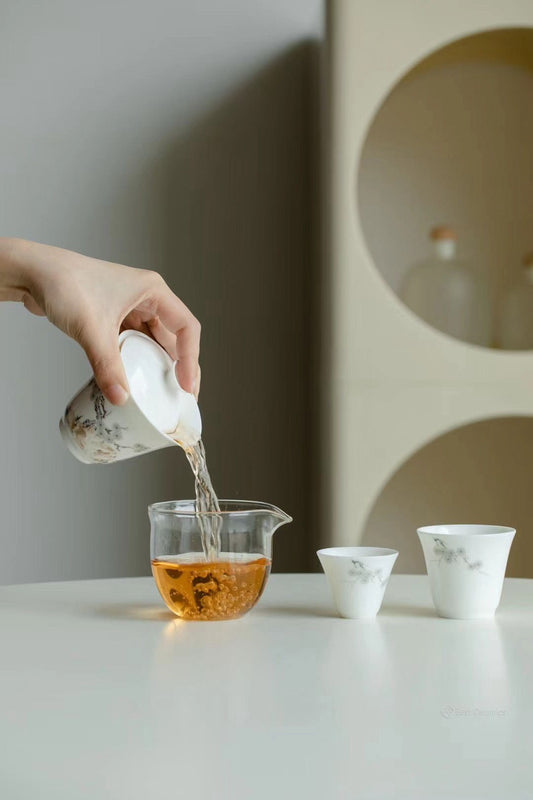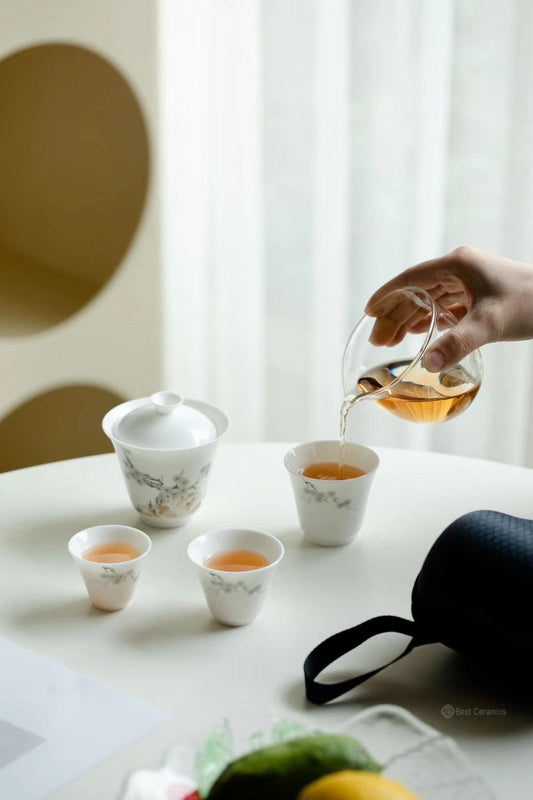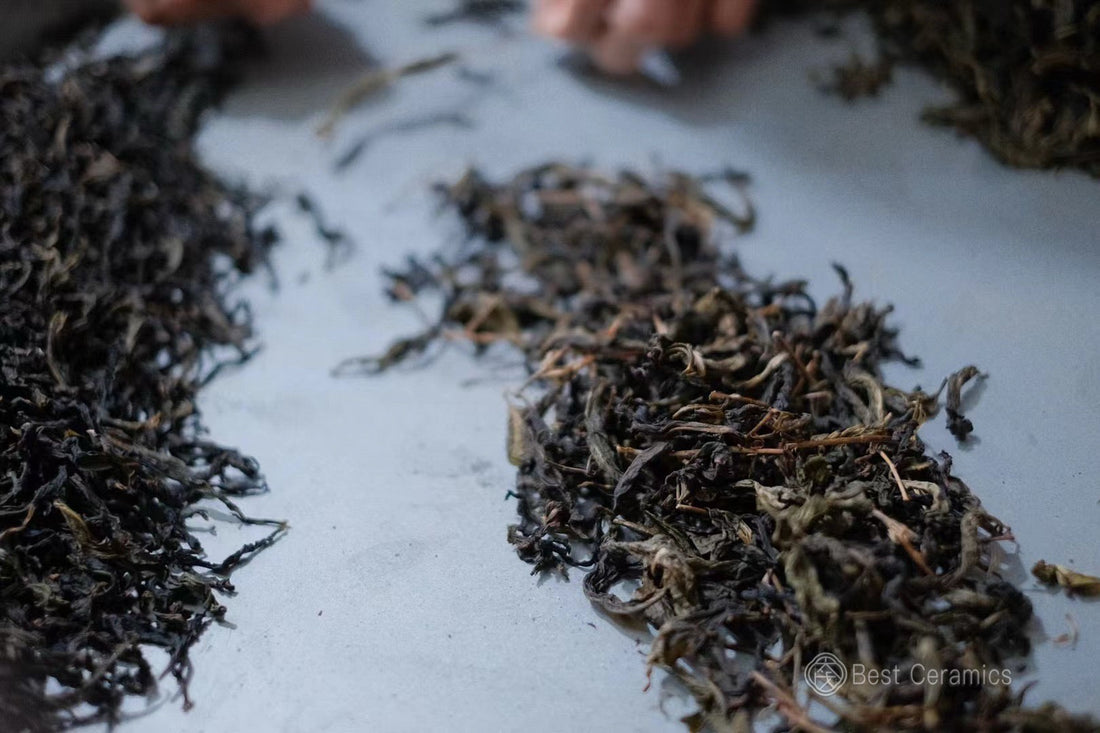
The Best Chinese Teas for Winter Warmth
YuanKevinShare
Winter is cold, and the body needs warmth and nourishment. Choosing the right tea not only helps resist the cold but also strengthens the body. Chinese teas are diverse, with different effects and brewing methods. Here are some teas especially suitable for winter and tips on how to brew them.
Black Tea: Warm and Invigorating
Black tea is warm in nature and ideal for cold winters. It promotes blood circulation and boosts the body's ability to resist cold. Black tea, rich in polyphenols and vitamins, enhances immunity. Keemun and Dianhong teas are recommended for their rich aroma and mellow taste.
Brewing Tools:
Use Dehua white porcelain gaiwan or Yixing teapots to retain the aroma and elevate the flavor. Dehua porcelain, with its translucency and insulation, is perfect for winter black tea.
Ripe Pu-erh Tea: Warm and Nourishing
Ripe Pu-erh tea, being fermented, has a mild nature that warms the stomach, making it ideal for winter. It also aids digestion and alleviates greasiness, perfect after heavy winter meals.
Brewing Tools:
Use Yixing teapots or ceramic teaware to fully release the aroma and taste of Pu-erh. Yixing clay's insulation enhances the tea's richness.

Da Hong Pao: Warming and Strengthening
As a representative of Wuyi rock tea, Da Hong Pao is known for its warming properties. Its rich flavor and "rock charm" make it ideal for winter.
Brewing Tools:
Use small Yixing teapots or white porcelain of Dehua to best bring out Da Hong Pao's nuances and layers.
Aged White Tea: Moisturizing and Soothing
Winter's dryness calls for aged white tea (e.g., Shoumei) to soothe and moisturize. It also boosts immunity and is suitable for family consumption.
Brewing Tools:
Glass teapots or porcelain kettles allow you to appreciate the unfolding tea leaves while keeping the brew pure.
Flower Tea: Relaxing and Aromatic
Jasmine and osmanthus teas are also good for winter. They soothe emotions and bring a comforting aroma to cold days.
Brewing Tools:
A gaiwan is ideal, allowing precise control of water temperature and time to release floral aromas.
Brewing Tips
- Water Temperature: Black and Pu-erh teas require 90-95℃ water, while white and flower teas prefer 80-85℃.
- Teaware: Insulated tools like Yixing pots and Dehua porcelain are ideal for winter.
- Moderation: Avoid excessive tea consumption to prevent insomnia or digestive issues.
The right tea and tools can keep you warm and let you enjoy the essence of Chinese tea culture. Whether it's the richness of black tea, the warmth of Pu-erh, or the charm of Da Hong Pao, winter is the perfect season to enjoy a heartwarming cup.




